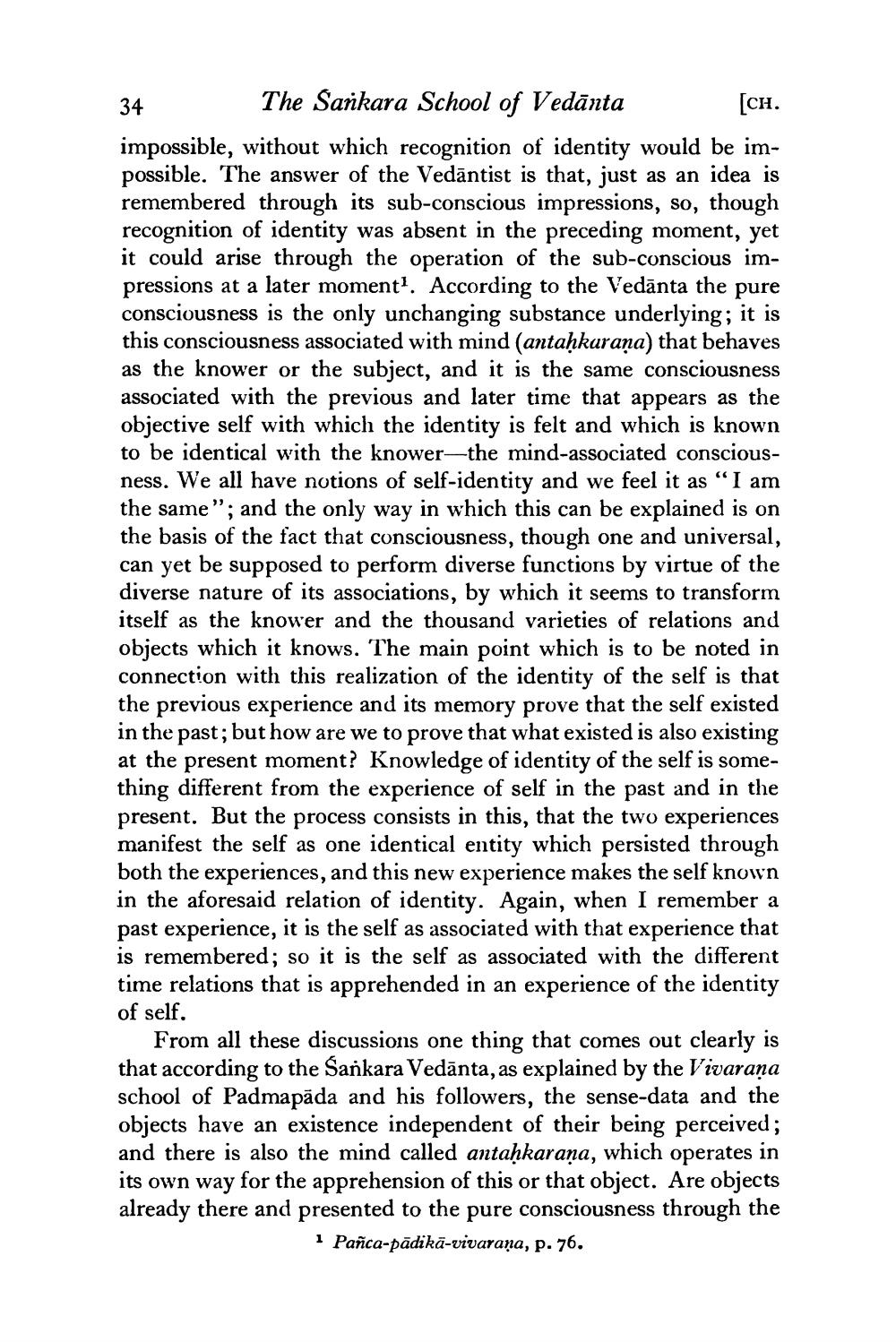________________
34
The Sankara School of Vedānta
[CH. impossible, without which recognition of identity would be impossible. The answer of the Vedāntist is that, just as an idea is remembered through its sub-conscious impressions, so, though recognition of identity was absent in the preceding moment, yet it could arise through the operation of the sub-conscious impressions at a later moment?. According to the Vedānta the pure consciousness is the only unchanging substance underlying; it is this consciousness associated with mind (antaḥkuraņa) that behaves as the knower or the subject, and it is the same consciousness associated with the previous and later time that appears as the objective self with which the identity is felt and which is known to be identical with the knower—the mind-associated consciousness. We all have notions of self-identity and we feel it as “I am the same"; and the only way in which this can be explained is on the basis of the fact that consciousness, though one and universal, can yet be supposed to perform diverse functions by virtue of the diverse nature of its associations, by which it seems to transform itself as the knower and the thousand varieties of relations and objects which it knows. The main point which is to be noted in connection with this realization of the identity of the self is that the previous experience and its memory prove that the self existed in the past; but how are we to prove that what existed is also existing at the present moment? Knowledge of identity of the self is something different from the experience of self in the past and in the present. But the process consists in this, that the two experiences manifest the self as one identical entity which persisted through both the experiences, and this new experience makes the self known in the aforesaid relation of identity. Again, when I remember a past experience, it is the self as associated with that experience that is remembered; so it is the self as associated with the different time relations that is apprehended in an experience of the identity of self.
From all these discussions one thing that comes out clearly is that according to the Sankara Vedānta, as explained by the Vivarana school of Padmapāda and his followers, the sense-data and the objects have an existence independent of their being perceived; and there is also the mind called antahkarana, which operates in its own way for the apprehension of this or that object. Are objects already there and presented to the pure consciousness through the
1 Pañca-pădikā-vivarana, p. 76.




